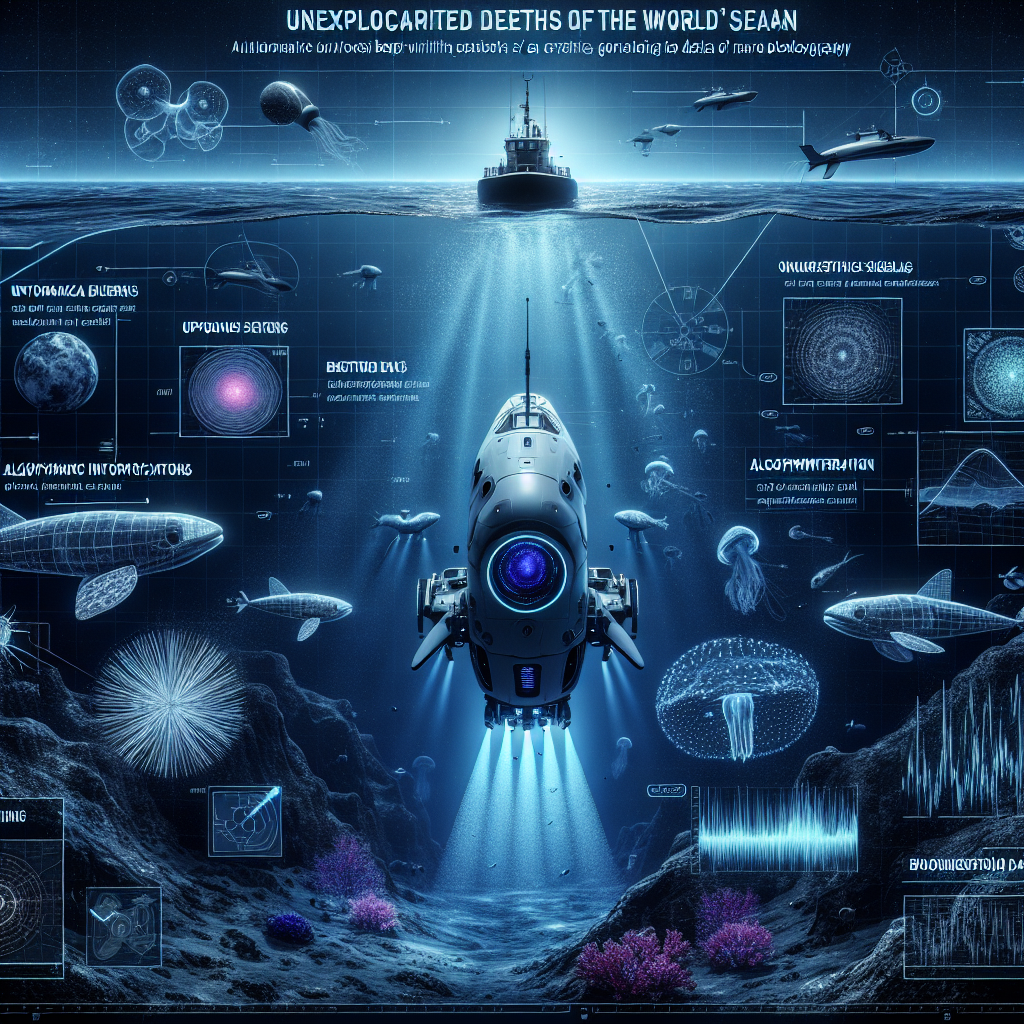AI Revolutionizing Ocean Exploration
In 1872, the HMS Challenger set sail on what became the first global scientific survey of the world’s oceans. Its discoveries laid the groundwork for modern oceanography, yet more than 150 years later, over 80% of the seafloor remains unexplored. Enter artificial intelligence—a game-changer in marine science that is unlocking the deepest and most mysterious parts of Earth’s final frontier.
AI-Powered Mapping: Unveiling the Ocean’s Secrets
Traditional seabed mapping has long relied on sonar-equipped vessels and remotely operated vehicles (ROVs), methods that are expensive and time-consuming. AI-driven technologies, however, are transforming how we chart the mysteries beneath the waves.
- Autonomous Underwater Vehicles (AUVs): AI-powered AUVs, such as those used by the Schmidt Ocean Institute, navigate vast oceanic regions without human intervention, collecting high-resolution seafloor maps more efficiently than ever before.
- Machine Learning Models: Algorithms that analyze sonar and satellite data can now predict and classify seafloor terrain with remarkable accuracy, reducing the need for costly deep-sea expeditions.
- Big Data and Cloud Computing: AI systems process massive amounts of data collected from oceanographic studies, identifying anomalies and geological formations that might otherwise go unnoticed.
AI and Marine Ecosystems: Protecting Ocean Life
The deep sea is home to countless undiscovered species and fragile ecosystems that require protection. AI-driven tools are playing a vital role in marine conservation by enabling scientists to better understand biodiversity in these remote environments.
- AI-Powered Image Recognition: Neural networks analyze deep-sea images and videos, identifying species and cataloging marine life at a speed and scale impossible for human researchers to match.
- Predictive Climate Models: AI algorithms are improving climate change predictions by analyzing ocean temperature fluctuations, coral reef health, and ocean acidification trends.
- Illegal Fishing Detection: Satellite-powered AI systems track illegal fishing activity, helping authorities enforce marine protection policies and safeguard endangered species.
The Future of AI in Oceanography
As AI continues to advance, its role in ocean exploration will only grow. Future developments could include AI-driven deep-sea mining assessments that minimize environmental impact, real-time ocean current predictions for safer maritime travel, and autonomous exploration of uncharted underwater caves. With AI as a driving force, oceanography is entering a new era of discovery.
For a deeper look at how AI is shaping our understanding of the oceans, visit NOAA Ocean Exploration.

